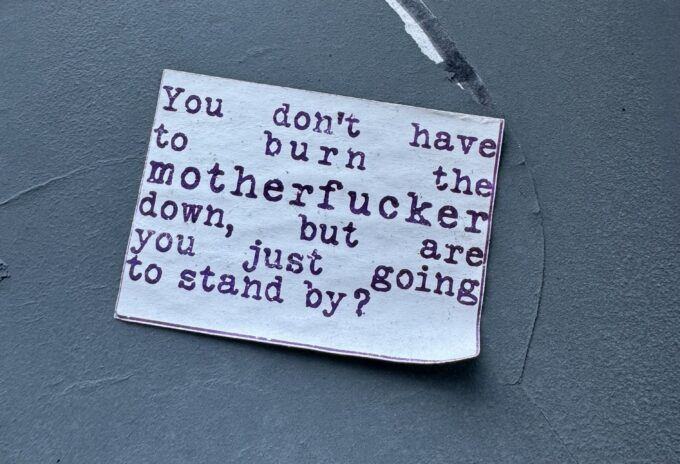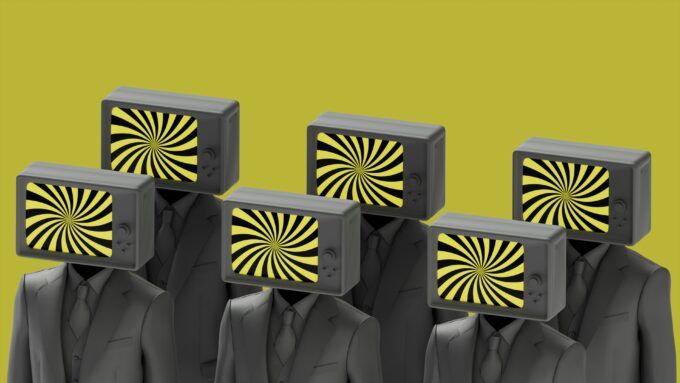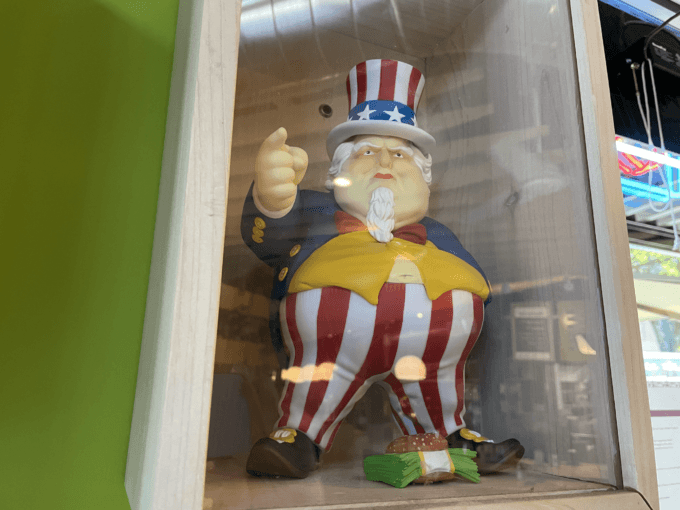
racism-baked-in
Published on http://www.counterpunch.org
“It is one thing to describe what was normal or obvious in a given time and place, such as the ‘naturalness’ of slavery … But it is another thing to try and figure out what makes the normal or obvious seem so.”
Geoff Mann, “The Inequality Engine,” London Review of Books, 4 June 2020
Whiteness is a privilege color in Western culture. Jacques Derrida referred to a White Mythology (1971) which involved whites pushing their own Indo-European logos, or, ways of attaching their words to a fundamental reality through their Reasoning. Derrida called this a mythology, offering a great many witty examples of how words, though hallowed with a variety of imprimatur, had the same hold on reality as did fiction. Such an accusation stirred things up in the last quarter of the 20th Century because both Indo-European whites and their reasoning were sacrosanct.
Cambridge refused Derrida an honorary degree in 1992: “Academic status based on what seems to us to be little more than semi-intelligible attacks upon the values of reason, truth, and scholarship is not, we submit, sufficient grounds for the awarding of an honorary degree in a distinguished university.”
What Derrida did was indict Western culture and its White Mythology on a foundational level by denying it an unimpeachable foundation. There were only narrated foundations, and, as Derrida’s contemporary, Foucault pointed out, power infiltrated all aspects of what we narrate or say, what we practice and what we institute. In turn, our ways of knowing and seeing emerge from such narration, practices and institutions. And so, what we take as reality is more of a shaky affair than a universal solid grounded in an absolute. Our shaky selves are behind the curtain like the bogus Wizard of Oz.
Although, we are today speaking of systemic and/or structural racism in the U.S., we are limiting both to a kind of instrumental reasoning which is perhaps the worst product of Indo-European logos. If racism flows through our societal system, like a virus through the body, the remedy is to eject the virus and return the body to its normal state. In short, a state in which racism thrived. If racism is structural and therefore a building block of society then the question arises as to what part of societal structure is racism and in what way is it supportive or the structure in need of such support?!?
In both analogs, we are far from Derrida’s deconstruction of both system and structure, a kind of activity in which mythology is exposed, useful binaries of a White Reasoning projected to establish hierarchy collapse, and the operations of privilege are disempowered. The system is a fabrication not in need of reform but exposure as to what it is fabricated or built against. The structure rests on an arbitrary foundation which is arbitrarily supportive. If you’re white, you’re supported, if not white, not. Binaries establishing an unequal relationship are the weak spots of such fabrications. It’s where Derrida launched his attacks.
So, a white/black binary has been so established across what we say, practice and institute. What virulent purposes does it serve?
Economics found purpose in a white/black binary, in the devaluing of blackness, and the U. S’s only Civil War, thus far, was fought. White/red and “Manifest Destiny” forged ahead. Economics, since Reagan, stands as the dominant, grounding force behind American politics. Whether a new Green New Deal economics can really emerge to disarm this force remains to be seen. It also remains to be seen whether our politics, after the success of an international outcry over the death of George Floyd and its resurrection of so many such murders of blacks in the past, may find it difficult to dog whistle racist fervor.
Our politics has found great use for this white/color binary without the need of any rational argument. It’s been very convenient for a political party representing the Winners and not the Loser majority to play the race card in order to gather voters. No need to reason a racist into it as reason wasn’t present at the inception.
We would have assumed that with all the enthusiasm with which we greeted the New Millennium that our medium of communication would have been reason not passion. Perhaps the quantum leaps made by cybertech deceived us; but what is evident, especially in the reign of Trump, is that our reasoning has collapsed, and the worst devils of our nature infest a large enough portion of the population to have brought Trump to power.
After 3 years, 156 days, 22 hours,14 minutes and 39 seconds of a Trump presidency, as of this writing, there remains a possibility that Trump will win another four years as president. That there is any possibility of that is not only astounding but a clear indication that a card like racism can be played and still prove effective.
The political use of racism defies and demeans the noble aspirations of our founding documents but a party fronting an economics which itself defies and demeans those aspirations has had no qualms in stirring up racism to attract voters.
Before Trump, the country was already soft on racism and at times, as with black African slavery and the extermination of Native Americans, racist whole heartedly. But Trump from his first “birtherism” attack on Obama to now has cast Mexicans as drug dealers and rapists, has kicked up anti-Muslim hatred, has joked on Twitter about Native American genocide, and most recently tried to pin the pandemic on — racist inflection — “Chai-na.” His is a no color excluded racism, except thus far, orange.
But problems at the deeper level remain. We are standing on a rotted foundation of reason, logic, and morality, a presence that feeds upon an absence, a sense of justice and equity that hypocritically emerges from unfounded hierarchy. The elemental dualisms at work here have enabled a form of advance, an advance that owns reason for its existence. What makes any liberation difficult is the fact that we are already in the conditions, reasoning within the surround which we wish to change. We do not reason outside such conditions but are always already within them. We may see ourselves as seeing and thinking outside racist conditions but when we consider we do not see ourselves outside our hyper-capitalism, we fail to see how racism is baked into that hyper-capitalism.
Although it is whites who are absent color it is those of color who are held to be without all the honors whites grant themselves. What then is the absence we see in blackness? Clearly, it has a moral dimension, a moral categorizing in which black is evil.
The moral order is grounded in hierarchy and preference. William Blake exposed its hierarchy and its attachment to a Reason which fed what he held to be an unjust, inequitable order of things. The Marriage of Heaven and Hell challenges a defining of “the Good” as no more than a subjugation and denial of those human energies which overspill a confining view of human and world. Moral categories legitimized a usurping Reason which itself legitimized an imbalance of both political and economic power held us all within a one-fold vision when our own imaginations could release us into an apocalyptic four-fold vision.
Heady stuff but the genius of Blake’s own mythology, one that countered on an ontological/cosmological level an 18th century Age of Reason, pointed to the human construction of world and self, a construction he felt to be in a deeply fallen state.
There’s a rightness in being reasonable, and vice versa, and so the moral binaries weave themselves into the rational/irrational. We cannot reason without not only excluding what is unreasonable but also being able to identify what is unreasonable. Progress within this mythology has always meant establishing what is superior to what is inferior. A presence must be established on the back of what is to remain absent. For something to be built, something must be vacated.
A sense of justice is so built as well as a sense of equity, although both can only be disingenuously asserted to exist in such a situation. A moral hierarchy depends on fixing goodness in one camp and evil as its absence. Distinguishing one from the other in self and society becomes a necessity on moral, justice and equity levels. A growing awareness however reveals to us that there is no justice nor any hope of equity nor any assertion of the good that results from a society built on exclusion and absence, and the perpetuation of both.
What I am saying is that there is a foundational ontological need in our White Mythology to leave out, to exclude, to denigrate in order to firmly uphold what leads to and builds our preferred order of things, a hierarchy built on death in order to have growth. But alongside this ontology is a complicity which is perversely cultural. We live within the hierarchy of our values, not as a matter of personal choice but because we are framed within such realities. Out of these do we perceive others and the world.
Ours is a meritocracy of whiteness; our billionaires are born white or adopt whiteness.. What is most difficult to face is the fact that our mythology of so many hundreds of years duration has made a false reality which we live within, both black and white. If you’ve seen Samuel Fuller’s film White Dog, you know that a dog can be trained to attack blacks by shaping conditions that are adopted as instinctive. The point is that we can learn within culture what we then assume is natural, instinctive, or, worse, rational. Fuller’s film investigates whether that racism can be treated.
If you’ve seen the countless Hollywood movies in which blacks grovel, gambol and play the fool, from Willie Best and Mantan Moreland rolling their eyeballs to Stepin Fetchit shuffling, you know that we’ve shaped blacks within our white superiority gaze. Laura Mulvey pointed out in her groundbreaking essay in 1975 that what we see in film is women portrayed within the male gaze as passive objects of male desire. Women adopt the gaze of the male as their own objective, rational way of seeing the world. To be business-like, efficient and an achiever is to be male. What it is to be female free of the male influence is comparable to what it might be for a black to be free of the white construction of their identity.
Because patriarchal power has had the financial support of the salaried male, economics has in turn supported male/female inequities. That arrangement has lost much of its hold now that women have their own economic power. Vestiges of the cultural investitures persist as witnessed by the continuing objections to ERA amendment.
Blacks, however, remain caught without economic power as well as held within the White Mythos gaze, within all the “instinctive” ways our culture diminishes black existence. Here we have both an ontological and a perceptual problem since the way in which we have our being in the world determines how we perceive the world. And the way we perceive in a hierarchical, binary arrangement of reality confirms that arrangement.
American blacks have been constructed within the gaze of the White Mythology to be both irrational, or incapable of a white man’s rationality, as well as immoral as demonstrated in the black males’ lustful appetite for white women, his instinctual laziness and failure to work unless whipped, his looting rampages, instinctual criminality, crazed resistance to arrest, innate incapacity to be white man smart. The false impositions of an identity that must be denied proliferate as if for our civilization to have a privileged identity it must not only de-privilege but debase and excoriate what it rejects. What we have here is an ontological/psychological need of a privileged identity.
People of color are excluded as possible winners in our economic hierarchy. Blacks have remained at poverty levels in a disproportionate percentage to white. It is clearly one of the places where what we deny presence to can be tried, sentenced and punished. Failure to achieve with the white meritocracy, failure to be recognized and respected. To be a privileged winner, a person of wealth, what is absent must be, paradoxically, evident. To solidify the identity of winning, the losers must therefore adapt within the gaze of the winner, which is to be in every way lost, deficient, less.
To overcome this imposition, efforts must be made to fortify a black identity that is free of a subservient past but also free of the pressure of a rapacious capitalist society to make winning what that society defines it to be and free of ways of winning that exclude all people of color.
Within the perversity of our White Mythology there is no possibility of progress unless one presence advances at the expense of an absence that must in all domains of advance remain excluded. If we all advanced together, no Capitalist would know he or she had advantage. If we were all equally present before the law, money would have no lobbying power and an incentive to win would be destroyed. If we were all white, all color vanished, the logic of hierarchy would have to seek differences of eye and hair color, nose size, height and weight. The color of skin has been a simplistic measure of difference, but it has served the needs of a White Mythology, here and elsewhere, for a long time.
If we all had equal wealth, the capitalist fear is that we might lose the incentive to compete and win, the Trumpian urge to dominate. Or, as Bertrand Russell pointed out to anarchists, after a time some would find ways to take from others and thus equality of wealth would vanish. Perhaps it would be those with guns who would dominate. Perhaps it would be the financial wizards who would find a way to make the money of others work for them. Perhaps it would be the tech nerds who would invent new cyber devices and make a billion dollars before the age of 30. Domination is as enforced within our White Mythology as racism, and both serve our economic system.
The zero-sum game of our economics, the psychology of winning and dominating, of money is the only good ethos is a major beneficiary of our White Mythology and therefore a major contributor to our privilege/exclusion dualism. Power in our globalized, financialized economics is not an equalizing force but one resting on domination, both power and domination emerging from wealth. And because the path from one to the other is denied the dominated, the powerless and the financially diminished, we are led to a recognition that the binary of greater and lesser value, of privileged presence and excluded absence, of recognized identity and rejected otherness thrives in our economics.
As our being in the world is not a centered, essential absolute, a creation of a Divine Logos, but rather always subject to our own worlding, our own culture making, our economic hierarchy affects being, reality, perception and our reasoning.
Piketty’s Capital in the 21st Century presented an “exhaustive description of the evolution of income and wealth inequality in industrialized countries over the last two hundred year.” What that reveals is that “a tendency to increasing inequality is baked into capitalism.” (Mann) That inequality roots deeply into our racist being in the world while that racist ontology expresses itself in capitalism. Both are baked into each other so that how we find ourselves in our hyper-capitalist era, Piketty’s descriptive, is within a culture whose growth and progress is toward further inequality and at the same time toward a white identity as the Winner’s.
There is then a great deal more than police reform or defunding or pulling down statues involved in dealing with racism in the United States, although those are fires burning now. But how to uproot and transform the powerful engine of inequality driven by our economics and infesting the very way we have our being in the world, how to bring what makes all this “normal” into the open so uprooting and transformation can happen is “another thing.”
We seem, however, at this moment, reeling from the sheer number of racist murders and withdrawn by pandemic from the hyper industriousness of our hyper-capitalist engine, to be at the threshold of putting all the pieces together and figuring it out.














